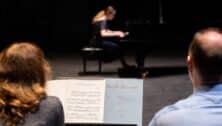Chester County Leadership: Jerry Parker, President, Delaware County Community College
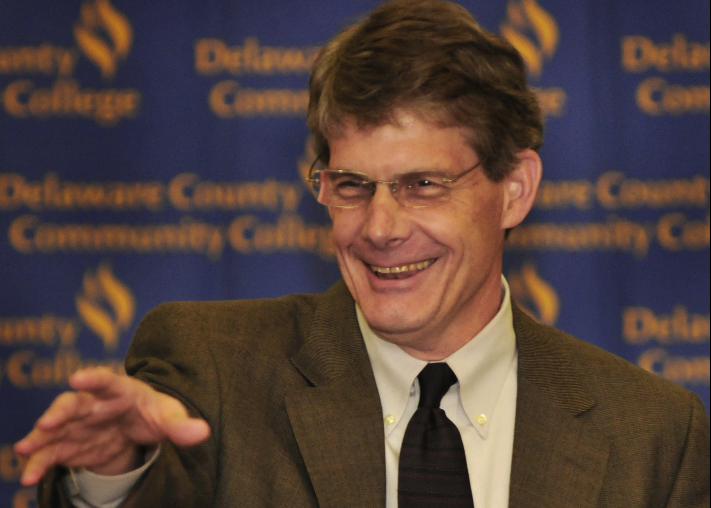
Jerry Parker, President, Delaware County Community College, speaks to VISTA Today about growing up in Pennsylvania’s coal country; attending Wesleyan College before landing a job recruiting at Vassar College; getting a Masters and then Ph.D. in Wisconsin before getting hired as an assistant to a vice-president at Delaware County Community College in 1977; becoming the community college’s third president when Dick DeCosmo retired in 2003 and his ongoing initiatives to make Delaware County Community College even more flexible, accessible and affordable.
Where did you grow up Jerry?
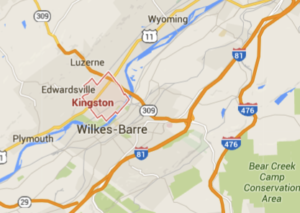 I was born in 1947 in Kingston, a small town in Luzerne County in northeast Pennsylvania coal country, the third of four children. My parents were both natives of the area. My father started a materials handling company after serving in the Philippines in World War II. My mother was a stay-at-home mom.
I was born in 1947 in Kingston, a small town in Luzerne County in northeast Pennsylvania coal country, the third of four children. My parents were both natives of the area. My father started a materials handling company after serving in the Philippines in World War II. My mother was a stay-at-home mom.
What memories do you have of growing up in Kingston?
Kingston was a quiet, family-oriented community where it was safe for kids to roam the neighborhoods on their bikes and to explore the nearby mountains of coal ash. Once considered economically depressed, it had made a comeback by attracting diverse industries.
Where did you go to high school?
Both my parents were well educated and came from families where education was important. They sent all of us to Wyoming Seminary, a private college prep school in Kingston.
What sports did you play in high school?
I wrestled and played tennis.
What music were you listening to in high school and college?
The 1960’s were the high-water mark of music. I watched American Bandstand, and Hootenanny and my musical tastes ran the gamut from folk music to Motown. I particularly liked The Temptations, Four Tops, and Bob Dylan.
Where did you go to college, Jerry?
I looked at several schools including Colgate and Cornell, but ended up choosing Wesleyan University in Middletown, Connecticut. My father had gone to Wesleyan and Wesleyan’s inclusive, need-blind admissions created a diverse student population which made the school an attractive choice for me.
Did Wesleyan end up being a good choice for you?
Yes, I majored in American Studies, was captain of Wesleyan’s wrestling team, ran the freshman dining hall, and made a lot of great friends.
That was a period of great upheaval and campus unrest. Did you get involved in any of that in college?
In high school, I had been an Eagle Scout, worked as a waterfront instructor at a Boy Scout camp every summer, and pretty much stayed out of trouble. I was a quiet, responsible kid. Having said that, I will tell you I did inhale, and I even participated in a student sit-in where a group of us occupied the college president’s office until our demands (divestment from South Africa) were heard. That experience is a bit ironic given my present position.
What did you do after college?
I got a job in the admissions department at Vassar College, the then all women’s liberal arts college in the town of Poughkeepsie, New York. When I joined the staff, Vassar was making the transition to being coed, and I was hired to recruit male students. I also was responsible for recruiting minority students (another irony), which gave me the opportunity to go into urban high schools like Bartram in West Philadelphia and encourage their best students to attend Vassar.
Going into the city was an interesting experience for me. I had always lived in a small town, so working in an urban setting was new. The valedictorian of an urban high school didn’t have nearly the qualifications of their peers who lived in more affluent suburbs. Many, but not all, of the urban kids had a tough time keeping up with Vassar’s academic rigor, or fitting into the school’s aristocratic culture. But there were a number of remarkable successes.
Given where you are now, I take it you liked working in an academic setting?
I did! I particularly liked the community college setting. For whatever reason community colleges have always resonated with me. Back in the 1960’s, community colleges were seen as an experiment in democratizing higher education. They were called the “people’s colleges.”
After Vassar and directing a Talent Search program in Milwaukee, I went back to school, first at the University of Wisconsin in Milwaukee for my Masters, and then to the University of Wisconsin’s main campus in Madison for my Ph.D. in higher education administration.
How did you get to Delaware County Community College?
When I finished my Ph.D. in 1977, I answered a classified ad for a position as Assistant to the Vice President for Administration at Delaware County Community College. When Dick DeCosmo, became the College’s second president in 1980, I became his assistant for planning, research, and external relations.
Over the next 23 years, I took on additional responsibilities gradually rising up to become Vice President of Community & Corporate Education. In my various roles, I was the alternate public face of the college, as well. Whenever a company or community group asked for a representative of the college to attend a function or make a presentation, and Dick couldn’t make it, I was called into action.
When Dick retired in 2003, I didn’t consider putting my name into the hat to replace him as president. I was content to remain the quiet, responsible guy in the background doing my job. It came as a surprise when someone on the search committee suggested I throw my name into the ring for the position.
Even though I didn’t believe I would be the committee’s final choice, I decided to apply. In the process, I came to realize that all the various support roles that I had taken on over the years had prepared me well. (Thanks Dick!) The rest is history.
Thirteen years later, how has Delaware County Community College changed?
The College has changed in many ways. Primarily, with 27,000 students, we are bigger, and with 44 percent students of color, we are far more diverse. We have also extended our reach with six campuses in Chester County and three in Delaware County, including our Main Campus in Marple.
What has not changed is the College’s founding commitment to affordable and flexible access to a quality post-secondary education for students seeking to acquire specific skills for direct employment or for the majority who use the College as a gateway to a four-year degree. Partnerships abound with both employers and transfer institutions.
Looking out over the rest of 2016 and the balance of your tenure in 2017, what are your biggest challenges and opportunities?
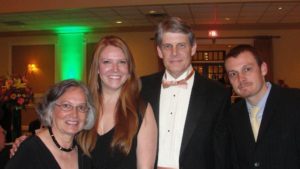
There is a lot of unfinished business I want to continue working on. First, we want to continue our efforts to become even more flexible, accessible and affordable than we are now and do whatever we can to help our students complete what they start and graduate faster. The longer it takes for students to finish, the less likely they are to finish. Life gets in the way.
Seventy percent of our students are taking classes part-time while holding down full- or part-time jobs. When and where we hold classes, and how we help our students tap into the myriad of financial options available to them, including grants, loans, and deferred payments, allows them to stay in school and graduate sooner.
We’ll continue to grow our online learning programs. Nearly 20 percent of our classes are offered online. With time and thanks to the hard work, dedication and persistence of our faculty and staff, we are getting better at both delivering course content and retaining students through the online learning process.
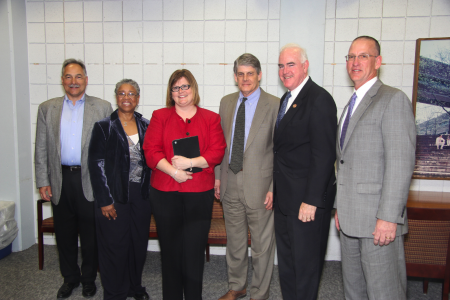
We are also improving and expediting our remedial Math, English and Reading courses. Many students who matriculate at Delaware County Community College don’t arrive with the requisite skills needed to succeed at a college level.
Our remedial courses help them catch up and provide a springboard for success not just in their other college classes, but at home and work, as well.
At our Downingtown Campus in Chester County, we will be spending close to $5 million dollars on a Science Technology Engineering Mathematics (STEM) wing. At our Exton Campus, we will be sharing space with West Chester University as part of our ongoing partnership.
Finally Jerry, what is the best piece of advice you’ve ever received?
It would be the Golden Rule: “Do unto others, as you would have them do unto you.” I’m not a particularly religious person, so I’m not sure where that came from. I’ve just always lived my life that way. I try to treat everyone I meet with the same kindness and consideration I would expect from them.
Connect With Your Community
Subscribe to stay informed!
"*" indicates required fields


![95000-1023_ACJ_BannerAd[1]](https://vista.today/wp-content/uploads/2023/03/95000-1023_ACJ_BannerAd1.jpg)











































